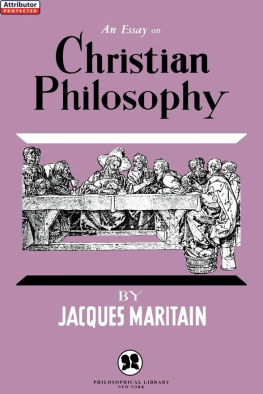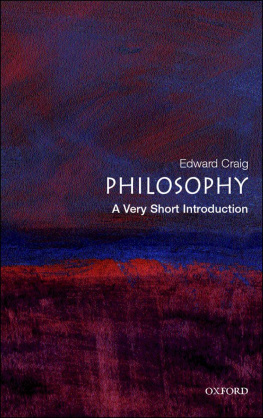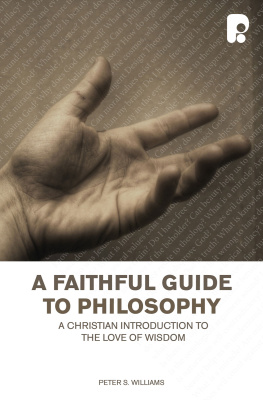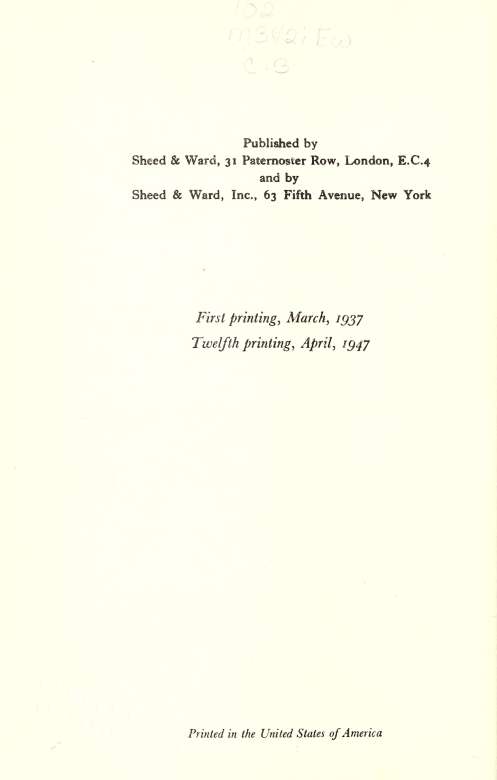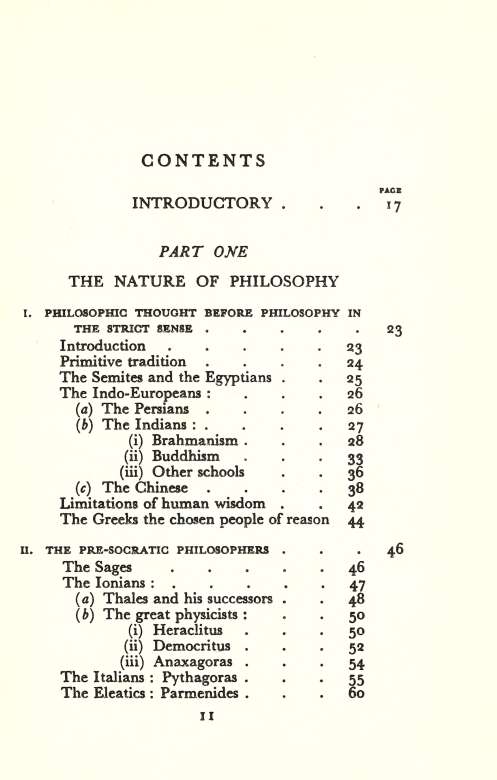This book made available by the Internet Archive.
PUBLISHER'S NOTE
The French edition of this work, under the title Introduction G^ndrale a la Philosophic, appears as the first volume of seven, which deal with Formal Logic, Theories of Knowledge, Cosmology, Psychology, Metaphysics, Ethics, ^Esthetics, and the History of Philosophy. But, since six out of the seven volumes remain to be written, it has been thought better to issue the present volume quite independently.
The series as a whole is intended to provide text-books for a regular university course as it is found in France, and with that particular end in view prints in larger type those paragraphs which the student should read first, and in smaller type those paragraphs which are merely explanatory or expansive of them. This schematising has been abandoned to make the volume serve for general readers, no university course being envisaged in England or America.
The translation has been made from the eleventh French edition.
PREFACE
My chief aim in composing an Elements of Philosophy series, to which this book may serve as an introduction, is to give a faithful presentation of the system of Aristotle and St. Thomas, and in its Ught to judge the important systems which have followed each other during the last three centuries and the principal problems discussed by modern philosophy. I have tried to adapt the method of exposition to contemporary conditions, and in particular have followed of set purpose a progressive order of expositionas far as possible the order of intellectual discoverynever appealing to any truth not already known and understood, and never introducing a new notion or proposition for which the way has not been prepared by those which have gone before it and led up to it. The method has obliged me to depart on several points from the procedure of the traditional text-booksabove all, considerably to magnify the importance and extend the scope of this Introduction. Yet, thus, I have but returned to the method followed by Aristotle himself. The first three books of his Metaphysics are, in fact, nothing but an extensive introduction.
A work of this kind, if it is to be thorough, demands the detailed discussion of certain points, without which the study it seeks to promote would lose all its value as a mental discipline. I should be untrue to tradi
PREFACE
tional philosophy if I reduced it to a few main theses which have lost their freshness, and a few commonplaces of a spiritualist metaphysic, and neglected to bring out its fine intellectual contours and display its power of penetrating analysis.
The present work is intended for beginners. It can therefore make no attempt to reproduce the depth or the wealth of subtle dialectic to be found in treatises written for specialists, and remains strictly elementary. It must, however, preserve the scientific character proper to a philosophical exposition.
Some readers may take alarm at scholastic terminology. Yet no science, no discipline, no form of sport, even, or industry, can dispense with a special terminologyoften far more arid and artificial than the vocabulary of philosophy. To require that philosophers should use everyday language implies that their science is just an enterprising topic of conversation, idle arm-chair speculation for after dinner. On the other hand, it may legitimately be demanded that no technical term be used until it has been clearly defined.
Finally, I would say that, if the philosophy of Aristotle, as revived and enriched by St. Thomas and his school, may rightly be called the Christian philosophy, both because the Church is never weary of putting it forward as the only true philosophy and because it harmonises perfectly with the truths of faith, nevertheless it is not proposed here for the reader's acceptance because it is Christian, but because it is demonstrably true. This agreement between a
PREFACE
philosophic system founded by a pagan and the dogmas of revelation is no doubt an external sign, an extra-philosophic guarantee of its truth ; but it is not from its agreement with the Faith, but from its own rational evidence, that it derives its authority as a philosophy.
Nevertheless, reason and faith, while distinct, are not separate, and, since I am writing principally for Christian readers, I have not denied myself an occasional reference to knowledge familiar to every Catholic, or to certain theological applications of philosophic principles, the better to put philosophy in its proper place in Christian minds, or to help them to maintain the unity of their thought. The fact remzdns that in our arguments and in the very structure of our exposition of philosophy, it is not faith, but reason, and reason alone, which occupies the entire ground and holds undivided sway.
CONTENTS
m. THE SOPHISTS AND SOCRATES .
Introduction The sophists Socrates ....
(a) Ethics and knowledge
(b) Irony, maieutic, dialectic
(c) Moderate intellectualism
65 68
IV. PLATO AND ARISTOTLE .
The minor Socratics . Plato ....
(a) His theory of ideas .
(b) His system of philosophy
(c) Its limitations . Aristotle ....
(a) Corrections of Plato .
(b) The Aristotelian system
(c) Aristotle's works Aristotle and St. Thomas . Philosophia perennis
74 75 75 78 81 82 83 87 92 97 99
V, DEFINITION OF PHILOSOPHY .
Scientific knowledge . Its material object Its formal object
Conclusion I
Further considerations
102 103 107
loB
VI, PHILOSOPHY AND THE SPECIAL SCIENCES
Philosophy judges the special sciences
It governs them
It defends them
It is pre-eminendy free
Further observations .
Conclusion II 12
III 113 117 118 118
CONTENTS
VII. PHILOSOPHY AND THEOLOGY.... I24
Nature of theology.... 124
Theology judges philosophy ..126
Philosophy submits to theology its
conclusions, not its premises . 126
Philosophia ancilla theologiae...129
Further considerations...129
Conclusion III . -132
VUI. PHILOSOPHY AND COMMON SENSE .. '133
Unscientific knowledge .. -133 Philosophy is derived from common sense, understood as the natural apprehension of first principles . 136 Common sense may accidentally judge
philosophy.....138
Conclusion IV .. 141
The method of philosophy .. 141
PART TWO THE CLASSIFICATION OF PHILOSOPHY
CONTENTS
The problem of universals
(a) Nominalism
(b) ReaUsm .



